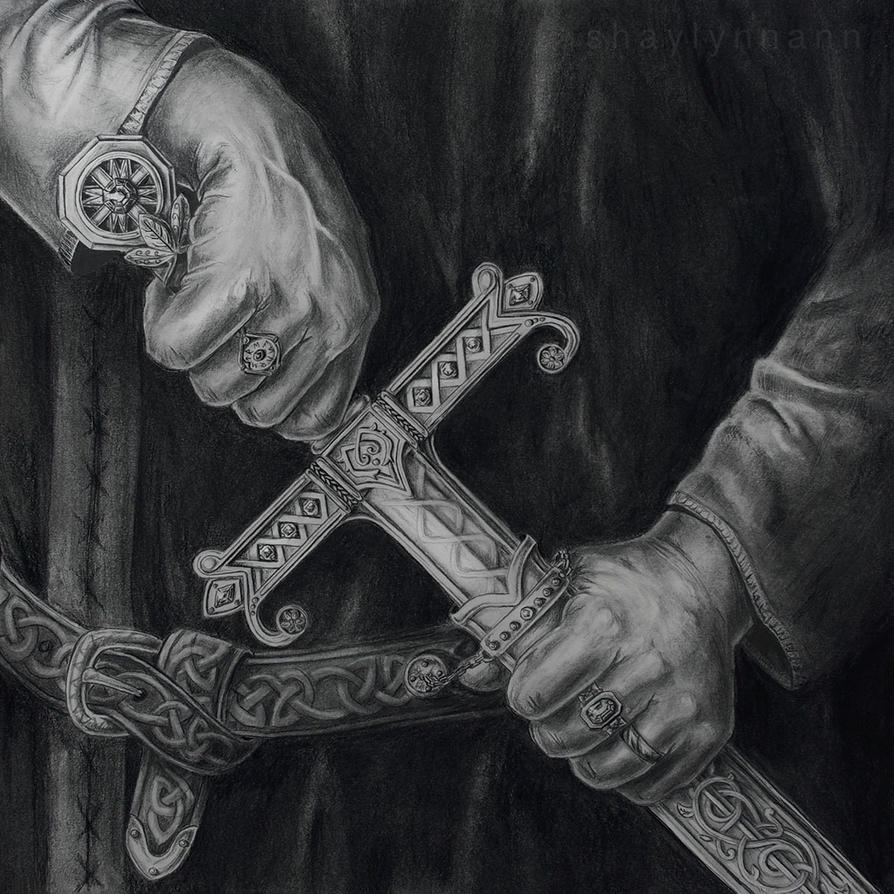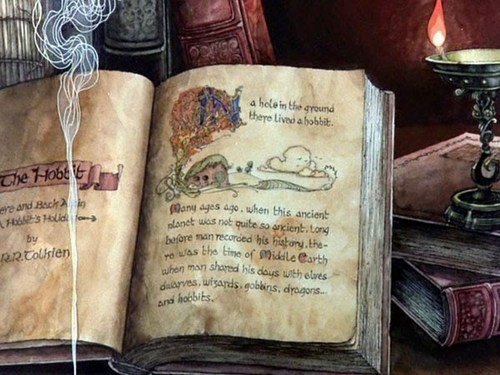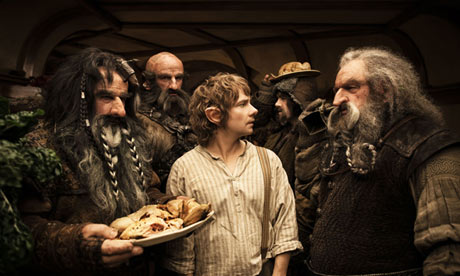When Peter Jackson announced that he would be continuing his work of bringing Tolkien's world to the silver screen, I was elated. When he later announced that he was going to split the story into three films instead of two while also including a great deal of material from the appendices of The Return of the King, I was a bit surprised and not surprised at the same time: surprised because I was still unsure how they were going to draw out the story of The Hobbit into three movies, even with filler from the appendices, and not surprised because Peter Jackson doesn't know how to make a small film project. "Go big or go home." I suspected that the story might suffer from this extension.
I went to see the film last Saturday with my roommate and I confess that I was disappointed. However, some things were nailed right on the head. First of all, I don't think anyone could have done a better job portraying Bilbo Baggins (besides Ian Holm) than Martin Freeman, who is well known for his role as the faithful, level-headed John Watson in the modern BBC adaption of Sir Arthur Conan Doyle's Sherlock Holmes. Steven D. Greydanus, film critic and creator of Decent Films Guide, describes Freeman's portrayal of Bilbo Baggins as "less interesting" than Ian Holm's in his review of the film. I would disagree here. Freeman's Bilbo was quaint, timid, and charming -- perhaps too timid, and here I would agree with Greydanus that Freeman's Bilbo seems more willing to be seen as a coward than Tolkien's Bilbo, who defends his honor thusly:
"I don't pretend to understand what you are talking about, or your reference to burglars, but I think I am right in believing" (this is what he called being on his dignity) "that you think I am no good. I will show you. ... I am quite sure you have come to the wrong house. ... But treat it as the right one. Tell me what you want, and I will try it, if I have to walk from here to the East of East and fight the wild Were-worms in the Last Desert." (J.R.R. Tolkien, The Hobbit)
It was nice to see some of the dwarves besides Thorin receive some individuality as well. Tolkien doesn't provide much of this for his readers, which is understandable when you have thirteen to keep track of, but I still appreciated this perk.
The film had some magical moments, for certain. One of my favorites (and I think a favorite for most movie goers) was the scene "Riddles in the Dark," the signature scene of The Hobbit where Gollum and Bilbo first meet. This scene still contained liberties: 1) the omission of the "birthday present" reference which is included in The Return of the King prologue but was somehow forgotten here, and 2) the interpolation of Gollum's schizophrenic personality into a scene where it was not originally emphasized. However, it was believable and masterfully acted! Another favorite moment was a moment referenced in The Fellowship of the Ring. At one point in Moria, Gandalf admonishes Frodo that it was pity that prevented Bilbo from killing Gollum. "Do not be too eager to deal out death and judgement. The pity of Bilbo may rule the fate of men." We see this moment played out before us in An Unexpected Journey. We see Bilbo's temptation to kill Gollum and the pity that stays his hand.
Three other great scenes: 1) when Bilbo defends himself against Thorin: "I know you doubt me. You always have. ... You don't have a home. It was taken from you, but I will help you take it back if I can." Well said, Bilbo. You've done your people proud. 2) When Thorin begins to respect Bilbo at the end of the film. 3) When Gandalf explains his reason for choosing Bilbo, "Saruman believes that it is only great power that can hold evil in check. That is not what I've found. I find it is the small things, everyday deeds of ordinary folk, that keep the darkness at bay. Simple acts of kindness and love. Why Bilbo Baggins? Perhaps it is because I am afraid and he gives me courage." This seemed very much in character with Gandalf, which brings me to my complaints with Jackson's adaption.
Gandalf did not seem as authoritative as he is in The Lord of the Rings or The Hobbit for that matter. He is usually the one with the answers, working behind the scenes. But when Radagast comes to Gandalf and the dwarves (which was added) and later at the council at Rivendell, Gandalf seems unfamiliar with the activities of the Necromancer (a.k.a. Sauron), which is definitely contrary to the book and, I thought, Gandalf's character. In the very first chapters of The Hobbit, Gandalf mentions the awakening of the Necromancer to Thorin. In Unfinished Tales, Tolkien further explains that this was part of the reason why Gandalf sought out Thorin and Bilbo Baggins.
While Radagast was charming as a character, I also felt his added role of distracting wargs and orcs and such was anywhere from unnecessary to a little over the top.
The White Council (the council among Gandalf, Elrond, Saruman, and Galadriel) seemed unconvincing. There were moments like this in Harry Potter that played out far better. Here I felt like I was watching something out of the second Star Wars trilogy... ugh... painful. And speaking of cheap, Azog was also a major disappointment. Granted, Azog did exist in Tolkien's head, but was beheaded by Thorin's cousin, Dain. I can see why Peter Jackson would include him. The story needs a villain since Smaug is absent for the length of story covered in the first part. But if that is the case, than perhaps it was a poor decision to extend the story into three films. Better that than bring back supposedly dead villains that come off as the product of a cheap fantasy novel.
 |
| "From the Dragon's Hoard" by Shaylynn Anne from Deviantart |
Greydanus describes The Lord of the Rings films as "full of bombast, but also brilliance, and moments of quiet grace, subtlety, and joy." There was sweeping grandeur, but there was also an abundance of simple beauty and sensible substance to back it up. For example, the exchange between Aragorn and Boromir in Lothlorien, or Sam's longing for the Shire on the slopes of the Mount Doom. Although Bilbo expresses his longing for home at the end of the movie, it would have been nice to see have seen or heard more of this as the story progressed, little moments of greatness.
That being said, it is a good action-adventure fantasy film and I will probably see it and enjoy it more than once. Nevertheless, I think I am beginning to understand my purist friends and how they feel about Jackson's The Lord of the Rings. I felt the same with the Narnia films, particularly The Lion, the Witch, and the Wardrobe. There were moments where the filmmakers were able to capture the magic of the story, but this time around the magic seemed much more illusive than it was in Jackson's prior adaptions of Tolkien literature. I'll finish by saying that while I am more reluctant to see other adaptions of The Lord of the Rings, I'm looking forward to a second try at The Hobbit, at least part I.



